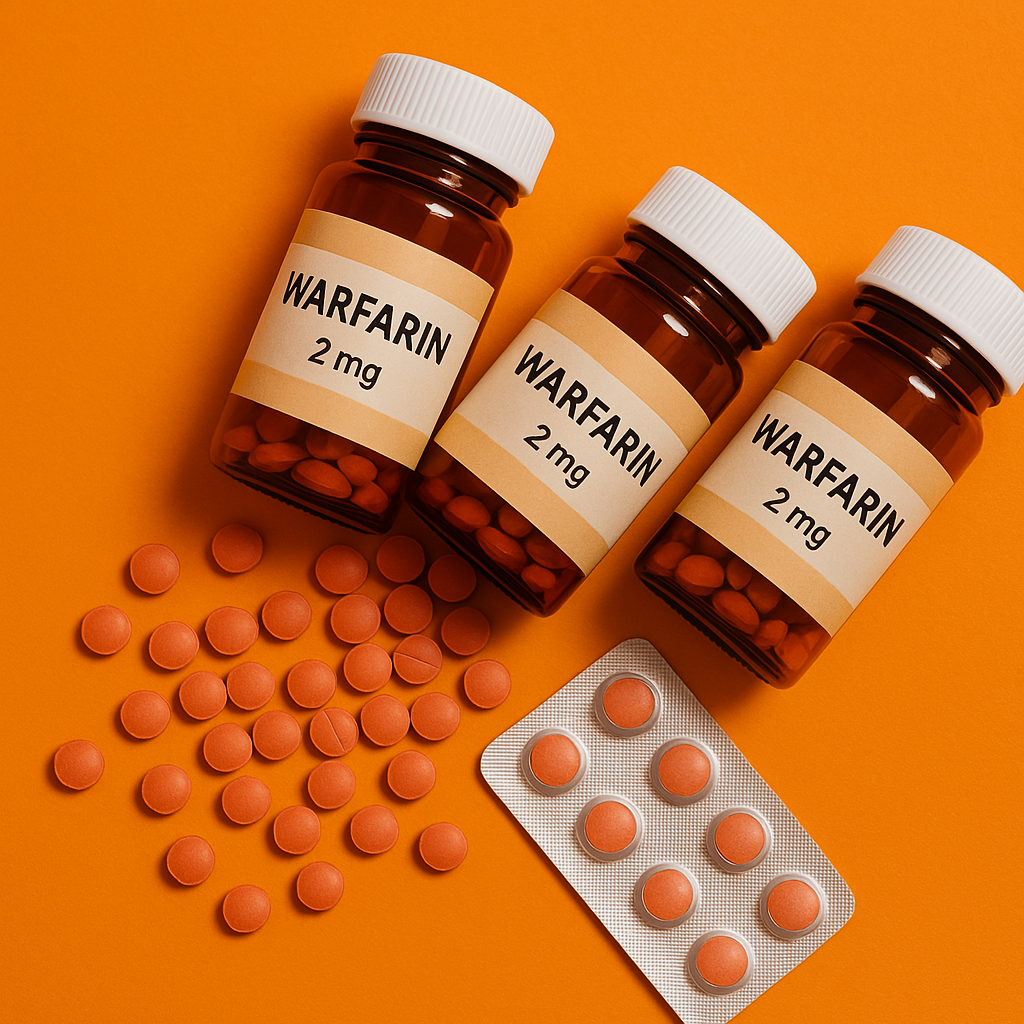Warfarin: A Doctor’s Guide to Safe Use and Common Concerns
An Introduction to Warfarin use


As a doctor, I often come across patients who are prescribed Warfarin but feel anxious about its use. Warfarin is a lifesaving anticoagulant, yet many people have doubts about its safety, side effects, and dietary restrictions. This post will help clear up common concerns and guide you on how to take Warfarin safely.
What is Warfarin and Why is it Prescribed?
Warfarin is an anticoagulant, also known as a "blood thinner" (although it doesn’t actually thin the blood). Its main job is to prevent harmful blood clots from forming or growing larger. This is important because blood clots can cause strokes, heart attacks, deep vein thrombosis (DVT), or pulmonary embolism (PE). If your doctor has prescribed Warfarin, it means your body is at risk for clot formation, and this medication can help save your life.
How to Take Warfarin Safely
Warfarin requires careful monitoring to ensure it works effectively while minimizing risks. Here’s what you need to know:
✔️ Follow the Exact Dose: Your doctor will adjust your dose based on regular INR (International Normalized Ratio) blood tests to ensure your blood is clotting at the right rate.Do Not skip your dose or make alterations unless ur doctor instructs you to do so.
✔️ Take It at the Same Time Daily: Warfarin works best when taken at a fixed time each day.
✔️ Watch for Signs of Bleeding: Minor bruising is possible and may be noticed, but unusual bleeding (nosebleeds, blood in urine/stool, excessive bruising) should be reported to your doctor immediately.
✔️ Wear a Medical Alert Bracelet: This helps healthcare providers know you are on Warfarin in case of an emergency.
✔️ Consult Before Taking Other Medications: Many drugs—including painkillers like ibuprofen and aspirin—can affect how Warfarin works. Always check with your doctor or pharmacist before starting a new medication.
Dietary Precautions While on Warfarin
Your diet plays a crucial role in maintaining the right balance for Warfarin to work effectively. The most important factor is Vitamin K, which affects blood clotting.
🥦 Leafy greens (like spinach, kale, and broccoli) are high in Vitamin K. You don’t have to avoid them, but it’s important to eat a consistent amount each day to prevent fluctuations in your INR levels.
🍊 Avoid excessive grapefruit juice as it can interfere with Warfarin.
💊 Do not take Vitamin K supplements unless directed by your doctor.
🥂 Limit alcohol intake, as it can increase the risk of bleeding.
Frequently Asked Questions (FAQs)
❓ How do I know if my Warfarin dose is correct? ✔️ Your doctor will monitor your INR levels through regular blood tests. A well-balanced INR prevents clotting while minimizing bleeding risks.
❓ Can I take Warfarin during pregnancy? ❌ No. Warfarin is not safe during pregnancy and can cause harm to the baby. If you are pregnant or planning pregnancy, speak with your doctor about safer alternatives.
❓ What should I do if I miss a dose? ✔️ Take it as soon as you remember, but never double the dose to make up for a missed one. Contact your doctor if you miss multiple doses.
❓ Can I have dental procedures while on Warfarin? ✔️ Yes, but always inform your dentist beforehand. Depending on the procedure, you may need to adjust your dose before treatment.
❓ What should I do if I experience abnormal bleeding? 🚨 Seek immediate medical attention if you experience severe bleeding, black/tarry stools, blood in vomit, or unexplained bruising.
Final Thoughts
Warfarin is a powerful medication that prevents life-threatening blood clots when taken correctly. By following the right precautions, maintaining a balanced diet, and staying in touch with your doctor, you can use Warfarin safely and effectively.
If you have any concerns about your Warfarin treatment, don’t hesitate to talk to your doctor—we’re here to help! 💙
